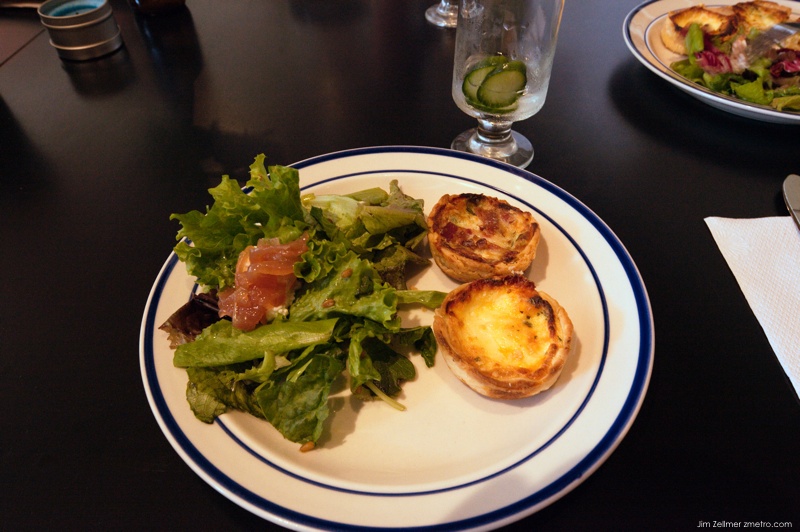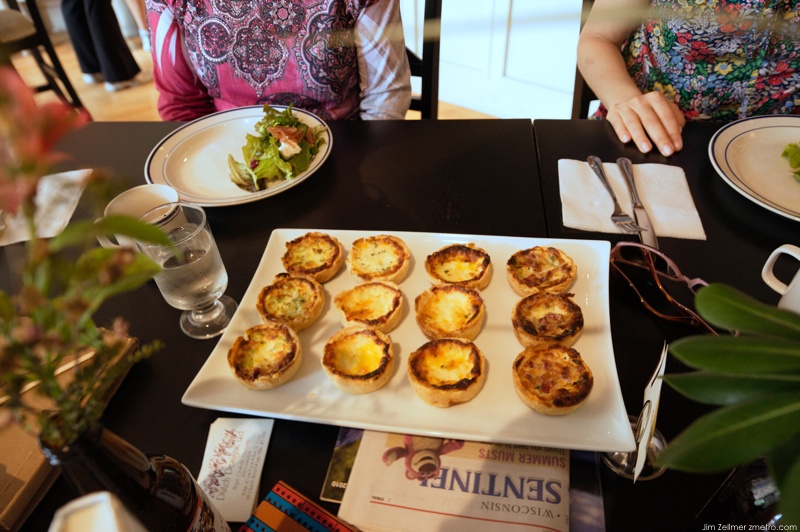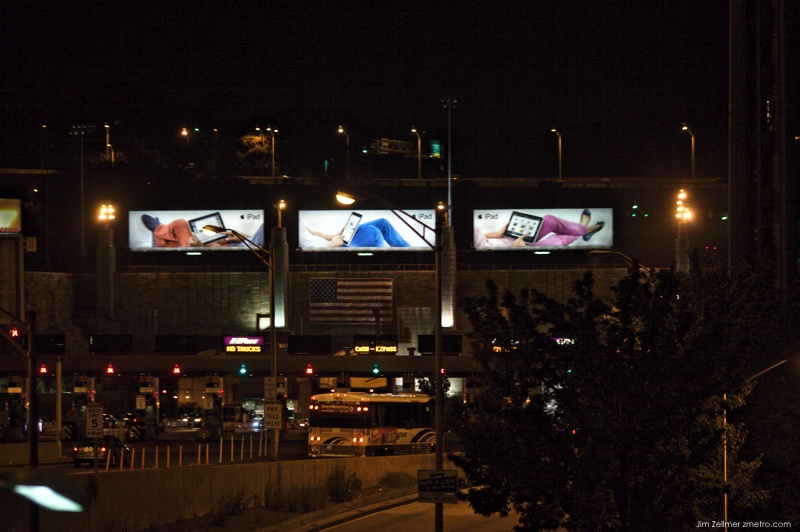



My father has been a fabulous mentor, friend and inspiration. Life is far from linear and he has always provided sage advice and offered me any number of useful opportunities over the years. I am thankful!
Isthmus recently reviewed Lake Mills’ Water House Foods. Today’s brunch was interesting, good and just right. It was also priced very attractively. Highly recommended.
Monthly Archives: June 2010
Holland Tunnel

Madison Farmer’s Market Bounty



A beautiful day after a rainy/stormy week. Much to be thankful for.
Incapable of Rational Thought
It started with an email sent to the Chevrolet employees at their Detroit headquarters and warned them not to use the word Chevy in lieu of the far more formal Chevrolet. GM PR people added that there was a plastic jar put into the hallway there so that each time someone heard another use the now “forbidden” word, they would deposit money as a personal penance. This decision, they said, was simply protecting the brand image of Chevrolet, much the way Coke or Apple protected its image. The memo was signed by the President of Chevrolet and GM’s Vice President for Marketing.
Apparently at Ed Whitacre’s new GM, morons have retaken the institution.
Are they not aware that “Chevy” has been an affectionate nickname for Chevrolet for at least 80 years and is not likely to go away? Did these executives not know that “Coke” is to “Coca-Cola” what “Chevy” is to “Chevrolet”?
People don’t call their computers “Apple” — “Mac” being to “Macintosh” what “Chevy” is to “Chevrolet” — and certainly nobody calls anything “my Apple iPod.”
THE VELLUVIAL MATRIX
Half a century ago, medicine was neither costly nor effective. Since then, however, science has combatted our ignorance. It has enumerated and identified, according to the international disease-classification system, more than 13,600 diagnoses—13,600 different ways our bodies can fail. And for each one we’ve discovered beneficial remedies—remedies that can reduce suffering, extend lives, and sometimes stop a disease altogether. But those remedies now include more than six thousand drugs and four thousand medical and surgical procedures. Our job in medicine is to make sure that all of this capability is deployed, town by town, in the right way at the right time, without harm or waste of resources, for every person alive. And we’re struggling. There is no industry in the world with 13,600 different service lines to deliver.
It should be no wonder that you have not mastered the understanding of them all. No one ever will. That’s why we as doctors and scientists have become ever more finely specialized. If I can’t handle 13,600 diagnoses, well, maybe there are fifty that I can handle—or just one that I might focus on in my research. The result, however, is that we find ourselves to be specialists, worried almost exclusively about our particular niche, and not the larger question of whether we as a group are making the whole system of care better for people. I think we were fooled by penicillin. When penicillin was discovered, in 1929, it suggested that treatment of disease could be simple—an injection that could miraculously cure a breathtaking range of infectious diseases. Maybe there’d be an injection for cancer and another one for heart disease. It made us believe that discovery was the only hard part. Execution would be easy.
America’s Car-Mart: Bentonville’s Secret Sauce Makers
The Financial Investigator: Most every day at 802 Southeast Plaza Avenue in Bentonville, Arkansas appears to be a pretty good one.
That’s because that address houses the headquarters of Americas Car-Mart, an auto retailer that has found the sweet spot, the intersection where a corporation’s business model meets consumer demand and the net income flows like cool, clear water.
Focusing exclusively on the sub-prime auto-buyer, their clean and efficiently-organized used-car lots throughout the south-central and southwest regions offer a stark contrast to the traditionally dodgy experience of buying a used-car; no one at any Americas Car-Mart locale is likely to be mistaken for the Kurt Russell character in Used Cars. The staff is friendly and well-turned out, there is a wide variety of cars, trucks and vans to choose from, the business offices are clean and air-conditioned and, perhaps best of all, the word “no” just doesn’t appear to be used all that often.
From an analytical standpoint, the business model appears to be simplicity itself.
Madison Farmer’s Market Photos


Wall Street’s War
Congress looked serious about finance reform – until America’s biggest banks unleashed an army of 2,000 paid lobbyists.
t’s early May in Washington, and something very weird is in the air. As Chris Dodd, Harry Reid and the rest of the compulsive dealmakers in the Senate barrel toward the finish line of the Restoring American Financial Stability Act – the massive, year-in-the-making effort to clean up the Wall Street crime swamp – word starts to spread on Capitol Hill that somebody forgot to kill the important reforms in the bill. As of the first week in May, the legislation still contains aggressive measures that could cost once-
indomitable behemoths like Goldman Sachs and JP Morgan Chase tens of billions of dollars. Somehow, the bill has escaped the usual Senate-whorehouse orgy of mutual back-scratching, fine-print compromises and freeway-wide loopholes that screw any chance of meaningful change.
The real shocker is a thing known among Senate insiders as “716.” This section of an amendment would force America’s banking giants to either forgo their access to the public teat they receive through the Federal Reserve’s discount window, or give up the insanely risky, casino-style bets they’ve been making on derivatives. That means no more pawning off predatory interest-rate swaps on suckers in Greece, no more gathering balls of subprime shit into incomprehensible debt deals, no more getting idiot bookies like AIG to wrap the crappy mortgages in phony insurance. In short, 716 would take a chain saw to one of Wall Street’s most lucrative profit centers: Five of America’s biggest banks (Goldman, JP Morgan, Bank of America, Morgan Stanley and Citigroup) raked in some $30 billion in over-the-counter derivatives last year. By some estimates, more than half of JP Morgan’s trading revenue between 2006 and 2008 came from such derivatives. If 716 goes through, it would be a veritable Hiroshima to the era of greed.
Vintage VW Bus Signage
Group cites study in push for Google antitrust case
Consumer Watchdog continues to push its case that Google Inc.’s behavior necessitates antitrust scrutiny, releasing a report that alleges that the company is abusing its dominance in online search to direct users to its own services.
The study cites online traffic data that the Santa Monica group claims show the Mountain View Internet giant seized large portions of market share in areas like online maps, video and comparison shopping after its search engine began highlighting links to its products in results.
Google called the report’s methodology and premise flawed and said its practices are designed to benefit users.
